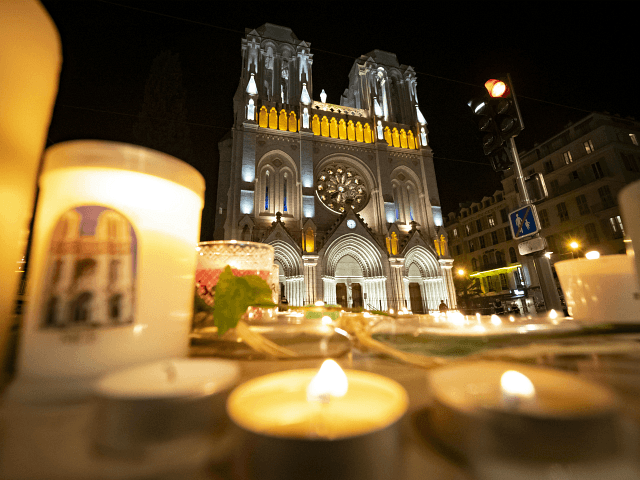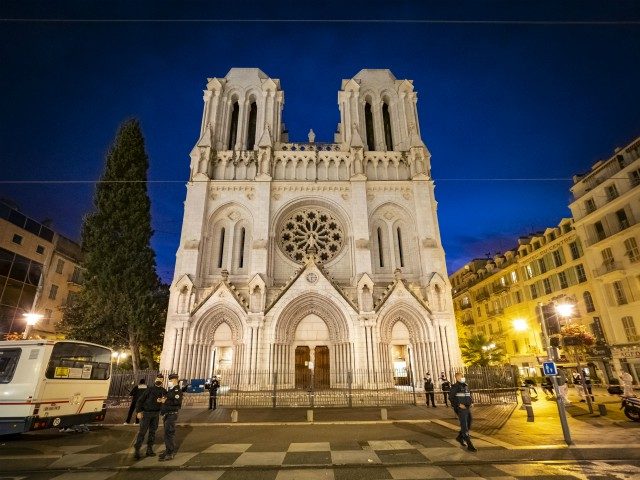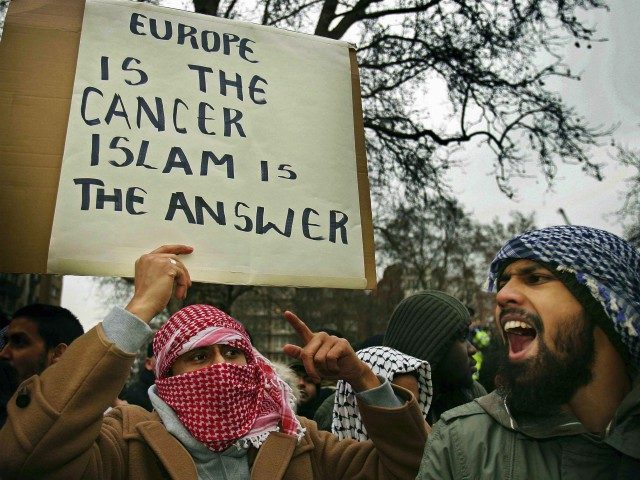Ex-PM of Malaysia’s ‘Muslims Have a Right to Kill Millions of French’ Rant Removed by Facebook, Twitter

Former Prime Minister of Malaysia Mahathir bin Mohamad’s extraordinary diatribe that “Muslims have a right to be angry and to kill millions of French people” has been removed from Facebook and Twitter.
Mohamad, who led the Muslim-majority country as recently as March 2020, had said that “Muslims have a right to be angry and to kill millions of French people for the massacres of the past” on the same day a gruesome terror attack took place at a church in Nice, which was itself something of an epilogue to the public beheading of teacher Samuel Paty near Paris.
Twitter ruled that Mohamad’s tweet violated its rules against “glorifying violence” but initially allowed it to remain visible to his 1.3 million followers, deciding it may be in the public interest to do so, according to the Sydney Morning Herald.
It reversed this decision and took the tweet down amid significant public anger — but the rest of the thread remains available, including a subsequent tweet asserting: “Since you have blamed all Muslims and the Muslims’ religion for what was done by one angry person, the Muslims have a right to punish the French.”
Facebook has removed the rant in its entirety.
Ex-Prime Minister of Malaysia: ‘Muslims Have a Right to Kill Millions of French People’ https://t.co/X8UhOxWFUw
— Breitbart London (@BreitbartLondon) October 29, 2020
The belated action by Twitter to take down one of Mohamad’s tweets falls well short of the action demanded by the French government, which told the managing director of Twitter’s French operations that “The account must be immediately suspended. If not, Twitter would be an accomplice to a formal call for murder.”
The Malaysian elder statesman’s rant was also condemned by the Australian government, with Prime Minister Scott Morrison of the conservative-leaning Liberal Party branding his comments “absolutely absurd”.
“Of course [Muslims] don’t have that right,” he said, in reference to the Malaysian’s remarks that “Muslims have a right to be angry and to kill millions of French people”.
“It’s just abhorrent to suggest anyone has such a right,” Morrison added, insisting that “the only human response to [the attack] is to be utterly devastated by it and stand with families who would be suffering so much.”
From Charlie Hebdo To Nice: 5 Years of Islamist Terror https://t.co/qZSv67d6Bp
— Breitbart London (@BreitbartLondon) October 29, 2020
Follow Jack Montgomery on Twitter: @JackBMontgomery
‘Tell My Family I Love Them’: A Mother, a 60-Year-Old Woman, and a Church Layman Slain in Nice Terror Attack

The victims of Thursday’s Islamist terror attack at the Basilica of Notre-Dame of Nice have been identified as a 60-year-old woman, a mother, and a church sacristan.
The assailant has also been identified as a 21-year-old Tunisian migrant, named, according to multiple sources speaking to French media, as Brahim Aouissaoui. Italian Red Cross documents also name the man as Aouissaoui. However, judicial sources have told L’Express that his identity has not been formally confirmed.
The Tunisian came to France just this month, after having arrived on September 20th on the Italian island of Lampedusa, which has become a landing ground for illegal aliens and asylum seekers from North Africa trying to enter Europe. Sources told L’Express that Italian authorities had put the suspect in quarantine, before releasing him and subjecting him to a deportation decree. He had reportedly not applied for asylum in France and was not known to French security services.
The knife attack occurred at around 9 am local time on the grounds of the church in the southern city of Nice. The suspect had killed three, nearly decapitating one, with a six-inch blade and injured several others, while reportedly shouting the Islamist war cry, “Allah hu Akbar!” ([my] god is greater [than yours]).
Municipal police shot and injured the man, who admitted to being called “Brahim” but claimed to be 25. Mayor of Nice Christian Estrosi told media that the terrorist would not stop uttering the “Allah hu Akbar” phrase even as he lay injured in the floor. He was then taken to hospital where he is still receiving medical treatment.
Authorities said they had discovered some of the terrorist’s belongings, including a copy of the Quran, two other unused knives, and two mobile phones.
•Terror Strikes Inside French Church
•Mayor: ’We Are Victims of Islamo-Fascism… Enough is Enough’
•Three Dead, Several Injured in Nice
•Perpetrator arrested, Hospitalised https://t.co/GFYufaL9Du— Breitbart London (@BreitbartLondon) October 29, 2020
The anti-terrorist prosecutor’s office confirmed that it had opened an investigation for “assassination in connection with a terrorist enterprise, attempted assassination in connection with a terrorist enterprise and criminal association of terrorist criminals”.
Suspicions have been raised that it was not a lone-wolf attack, with Nice-Matin reporting a suspected accomplice — a 47-year-old man — had also been taken into police custody after it was believed he had been in contact with Aouissaoui before the killings.
Police sources speaking to Le Figaro revealed that the first of the three victims is a woman aged around 60, who came to pray at the sunrise service. She was found “almost beheaded” near the font.
Canon Philippe Asso told the newspaper that the second victim killed inside the church was the sacristan, who is in charge of the day-to-day care and maintenance of the church plate and vestments. Vincent, 54, was a father of two daughters and had worked at Notre-Dame de Nice for ten years.
A second woman, a 44-year-old mother of three, was stabbed several times and seriously injured before managing to escape Aouissaoui. She was a Brazilian national, according to the Brazilian Ministry of Foreign Affairs, living in France. Taking refuge in a nearby bar, one witness reportedly said the woman’s dying words were: “Tell my family that I love them.”
Potential Copycat Terror Attack Foiled in Paris Suburbs After Nice Attack https://t.co/wGzDTCYd2v
— Breitbart London (@BreitbartLondon) October 29, 2020
Yesterday’s incidents saw a rash of other attacks on French interests. In Avignon, Provence, a man reportedly shouting “Allah hu Akbar” while pointing a gun was shot dead by police during an exchange of fire. The incident occurred just two hours after the Nice terror attack.
A potential copycat attack was foiled in Yvelines, as well, on Thursday. The suspect, who had been on the country’s terrorist ‘S-File’ list, was taken into custody after his father informed authorities that he wanted to “do as in Nice”.
Yvelines is significant, as it is the French department outside of Paris where 18-year-old Islamist Chechen refugee Aboulakh Anzorov beheaded teacher Samuel Paty for showing satirical cartoons of the Muslim prophet, Mohammed, during a freedom of speech lesson earlier this month.
In Lyon, authorities arrested a 26-year-old Afghan migrant, some two and a half hours after the Nice attack, for brandishing a 12-inch knife near a tram station. The suspect is known to security services for his connections to radical Islam. Media claims he has mental health issues.
While in Jeddah, Saudi Arabia, a guard at the French consulate was stabbed. The guard is said to be in a stable condition, with the assailant having been arrested.
All these incidents come in the wake of rising anger in the Muslim world over French President Emmanuel Macron’s staunch defence of secular values, including freedom of speech, following the murder of Mr Paty.
On Thursday, the former prime minister of Malaysia, Mahathir Mohamad, declared on social media that “Muslims have a right to be angry and to kill millions of French people for the massacres of the past.” Facebook and Twitter later took down the posts. However, despite calls from the French government, Mohamad’s Twitter account has not been suspended.
From Charlie Hebdo To Nice: 5 Years of Islamist Terror https://t.co/qZSv67d6Bp
— Breitbart London (@BreitbartLondon) October 29, 2020
Vatican Cardinal Calls for Battle Against ‘Monstrous’ Islamism

ROME — Vatican Cardinal Robert Sarah denounced Islamism Thursday following a lethal terror attack in a French church, calling it a “monstrous fanaticism.”
“Islamism is a monstrous fanaticism which must be battled with force and determination,” wrote the Guinean cardinal, who leads the Vatican Congregation for Divine Worship, invoking his own experience as an African.
“It will not stop its war. Unfortunately, we Africans know this only too well,” the cardinal wrote on Twitter. “The barbarians are always the enemies of peace.”
“The West, today France, must understand this. Let us pray,” he said.
France Shuts Paris Mosque that Shared Fatwa Call Against Beheaded Teacher https://t.co/zcRnwoyHQc
— Breitbart London (@BreitbartLondon) October 20, 2020
On Thursday morning, a Muslim man entered the Notre Dame Basilica in Nice armed with a knife, and proceeded to kill three people, including the church sacristan. Shouting “Allahu akbar” as he attacked his victims, the assailant was eventually apprehended by French police and is now in the hospital with gunshot wounds sustained during the encounter.
France’s national antiterrorist prosecution announced the opening of an investigation for “assassination and attempted assassination in connection with a terrorist enterprise” and “criminal terrorist association,” French media reported.
The mayor of Nice, Christian Estrosi, wrote on Twitter that all indications are that the incident was, in fact, a terrorist attack.
For his part, Pope Francis also expressed his closeness to the Catholic community of Nice, joining “in mourning after the attack which sowed death in a place of prayer and consolation.”
“I pray for the victims, for their families and for the beloved French people, so that they can respond to evil with good,” he also wrote on Twitter.
On Thursday, the pontiff sent a telegram to the Catholic bishop of Nice, saying he condemned “in the most forceful way such violent acts of terror.”
No comments:
Post a Comment